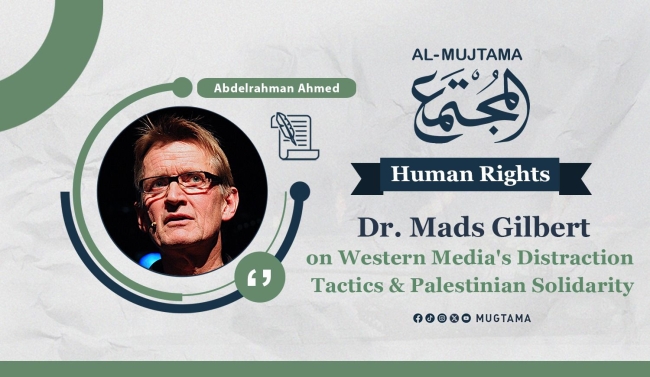Dr. Mads Gilbert on Western Media's Distraction Tactics & Palestinian Solidarity
he ongoing saga of the Israel-Palestine conflict, Dr. Mads Gilbert emerges as a voice echoing the sentiments of countless individuals worldwide who demand justice and accountability. His discourse on Western media's distraction tactics and the imperative of Palestinian solidarity sheds light on the intricate web of political maneuvering, human suffering, and the relentless struggle for truth amidst a barrage of misinformation.
Dr. Gilbert's poignant analysis begins by dissecting the disparity between Western governments' actions and the sentiments of their populace. He distinguishes between the power elites' reluctance to acknowledge Palestinian rights and the resounding support for Palestine expressed by ordinary citizens in Western countries. This dissonance, he asserts, reflects a profound disconnect between governance and grassroots movements, highlighting the inherent tension within democratic societies.
Central to Dr. Gilbert's narrative is the portrayal of Israel as the aggressor and Palestinians as the oppressed. He deconstructs the narrative propagated by Western powers, which often scapegoat Palestinians and label them as terrorists. Through a lens of moral clarity, he challenges such characterizations, asserting that the true purveyor of state terrorism is the Israeli government. By employing military might to intimidate and terrorize civilian populations, Israel flagrantly violates the principles of international law and human decency.
Dr. Gilbert's discourse extends beyond mere critique, delving into the legal framework governing armed conflict. Drawing from the Geneva Conventions, Dr. Gilbert elucidates the principles of proportionality, distinction, and precaution, which dictate the ethical conduct of warfare. He condemns Israeli actions that blatantly disregard these principles, whether by targeting civilian infrastructure or justifying attacks on purported military sites without adequate evidence.
Moreover, Dr. Gilbert shares firsthand experiences from his tenure working in Gaza, offering invaluable insights into the realities faced by Palestinians on the ground. He exposes the fallacy of Israeli claims regarding civilian casualties, recounting instances where hospitals like Shifa were unjustly accused of harboring military targets. Through meticulous documentation and personal testimony, he refutes baseless allegations and exposes the sinister motives behind attempts to silence dissenting voices.
Beyond the geopolitical intricacies, Dr. Gilbert's narrative underscores the human dimension of the conflict. He highlights the resilience of the Palestinian people, who endure systemic oppression and violence yet refuse to be silenced. Their quest for dignity, freedom, and self-determination resonates with global audiences, transcending political divides and inspiring solidarity movements worldwide.
In conclusion, Dr. Mads Gilbert's discourse on Western media's distraction tactics and Palestinian solidarity serves as a clarion call for justice, truth, and empathy. By challenging prevailing narratives and amplifying marginalized voices, he implores individuals to stand in solidarity with the oppressed and demand accountability from those in power. In a world besieged by misinformation and apathy, his message reverberates as a beacon of hope, guiding us toward a future built on justice, equality, and peace.


